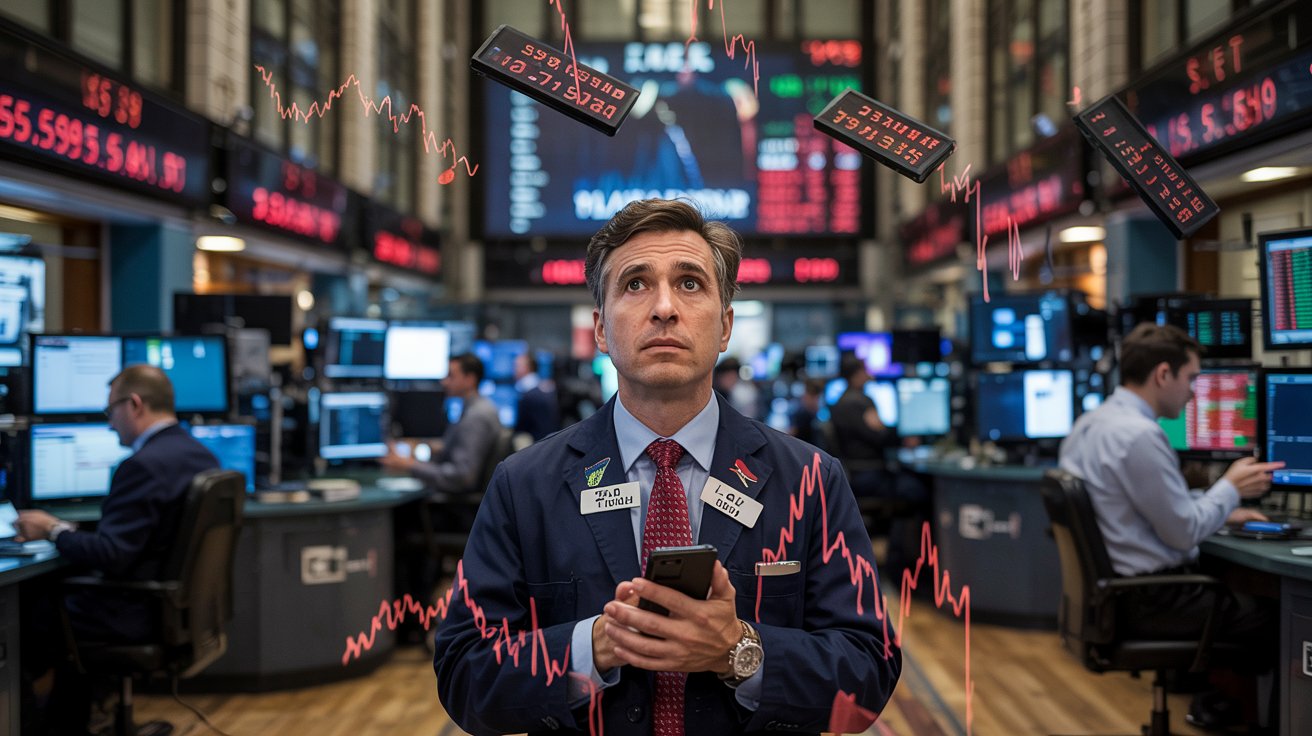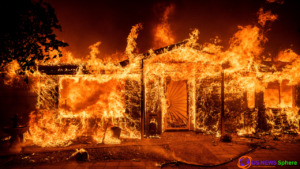The Dow drops 1,600 points, sending shockwaves through Wall Street and households across America. Is this just a market correction—or are we on the edge of a much deeper stock market crash? This article breaks down the key causes, data trends, expert forecasts, and how this could affect your money in 2025 and beyond.
What Caused the 1,600-Point Dow Crash?
The sudden drop came after President Trump announced a sweeping set of tariffs on global imports:
- 10% minimum tariff on all imports
- Up to 54% tariffs specifically targeting China
Key Triggers Behind the Crash:
| Trigger Event | Impact |
|---|---|
| Tariff Announcement | Triggered global trade war fears |
| Sell-Off in Tech | Apple (-9%), Nike (-14%), Tesla (-8%) |
| $1 Trillion Wipeout | From the “Magnificent 7” tech giants |
| Investor Fear | Shifted from growth to defensive stocks |
Bottom Line: These tariff policies sparked panic selling, especially in sectors dependent on global supply chains.
Global Markets React: A Chain Reaction Begins
It wasn’t just the U.S. that felt the pain—global markets reacted instantly:
| Country | Market | Decline |
|---|---|---|
| 🇺🇸 USA | Nasdaq | -4.7% |
| 🇯🇵 Japan | Nikkei 225 | -2.8% |
| 🇬🇧 UK | FTSE 100 | -1.6% |
| 🇩🇪 Germany | DAX | -3.1% |
Even emerging markets and crypto assets saw pullbacks, showing how interconnected the economy has become.
Are We on the Edge of a Recession?
Economists are concerned about stagflation—a rare mix of high inflation and slow economic growth. This happens when:
- Prices rise (due to import costs)
- Wages stay flat
- Growth slows
- Unemployment rises
Expert Forecasts:
| Source | Warning |
|---|---|
| MarketWatch | “U.S. has less than 60 days to revise tariffs to avoid recession.” |
| JP Morgan | Predicts 4.2% inflation by Q3 if tariffs hold |
| Moody’s Analytics | Forecasts 1.5% drop in U.S. GDP if no policy shift occurs |
Investors and families alike could see long-term effects, including job losses and reduced buying power.
How Tariffs Could Lead to a Stock Market Crash
[Tariffs Introduced]
↓
[Import Costs Rise Globally]
↓
[Corporate Profits Shrink due to Higher Costs]
↓
[Investor Confidence Declines]
↓
[Massive Sell-Off in Major Indexes]
↓
[Market Crash or Correction]
↓
[Possible Recession]What Should You Do as an Investor?
Now more than ever, it’s crucial to protect your assets and stay informed.
Smart Moves to Make:
- Rebalance your portfolio toward defensive sectors (utilities, healthcare)
- Hold more cash or short-term bonds to weather the storm
- Avoid speculative buying until markets stabilize
- Review your retirement contributions—stay diversified
Financial advisors are urging calm strategy, not panic.
The Real Risk: Is This Just the Beginning?
Here’s why this might not be a one-day event:
| Factor | Risk Level | Description |
|---|---|---|
| Trade War Escalation | 🔥 High | Could disrupt global supply chains |
| Inflation Surge | ⚠️ Medium | Prices could jump over 4% |
| Consumer Spending Dip | ⚠️ Medium | Wages aren’t keeping up with inflation |
| Policy Delays | 🔥 High | No sign of tariff reversal so far |
Final Thoughts: What Comes Next?
The market may bounce temporarily, but if tariffs remain unchecked, this could spiral into a sustained downturn. Investors should prepare for volatility while keeping an eye on White House trade negotiations and inflation data.
Long-term investors should focus on diversification, cash flow stability, and risk management strategies. [USnewsSphere.com / mw]





